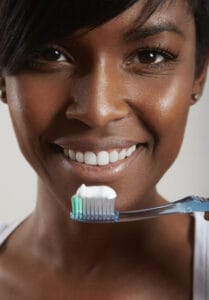FREE SHIPPING OVER $50
Boost Your Testosterone Naturally: Avoid These 10 Mistakes
Testosterone plays a crucial role in various aspects of men’s health, from muscle growth and energy levels to libido and mood. However, certain mistakes in your lifestyle, diet, and environment could be negatively impacting your testosterone production. In this article, we will explore the top 10 mistakes to avoid if you want to boost your testosterone levels naturally. By making simple adjustments to your daily habits and choices, you can enhance your testosterone production and enjoy the benefits of optimized hormone levels.
Mistakes to Avoid

- Avoid Tap Water: Did you know that tap water may contain harmful substances like atrazine, a pesticide found in 94% of US drinking water? Atrazine has been linked to hormonal imbalances, including testosterone disruption. Opt for filtered water or spring water to minimize your exposure to these contaminants.
- Avoid Phthalates: Phthalates are synthetic chemicals commonly found in plastics, personal care products, and household items. These chemicals can act as endocrine disruptors, negatively affecting hormone balance, including testosterone levels. Be mindful of the products you use and choose phthalate-free alternatives whenever possible.
- Avoid Sunscreen: While protecting your skin from the sun is important, many commercial sunscreens contain harmful synthetic toxins like parabens and benzophenone. These chemicals can disrupt your hormones, including testosterone. Opt for natural, zinc-based sunscreens or consider using protective clothing and seeking shade to minimize sun exposure.
- Avoid Sunglasses: Wearing sunglasses blocks UV light from entering the pineal gland through the optic nerves in your eyes. This gland plays a role in hormone regulation, including testosterone production. By allowing some exposure to natural sunlight, especially in the morning, you can support healthy hormone balance.
- Avoid Deodorants: Conventional deodorants often contain aluminum, a metal that has been linked to hormonal disruption. Aluminum can interfere with testosterone production and other hormonal functions. Opt for aluminum-free deodorants or explore natural alternatives like baking soda or essential oil-based deodorants.
- Avoid Chronic Masturbation: Excessive and frequent masturbation can lead to a temporary decrease in testosterone levels. While occasional self-pleasure is normal and healthy, it’s essential to maintain balance and moderation. Focus on cultivating healthy sexual habits and avoiding excessive stimulation to support optimal testosterone levels.
- Avoid EMF: Studies have shown that exposure to electromagnetic fields (EMF) from electronic devices and wireless technology can negatively affect testosterone levels. Minimize your exposure by keeping devices away from your body, using wired connections when possible, and practicing digital detoxes.
- Avoid Glyphosate: Glyphosate, a common herbicide found in pesticides like Roundup, has been linked to endocrine disruption and hormonal imbalances. Choose organic produce and foods to reduce your exposure to glyphosate and other harmful chemicals commonly found in conventionally grown crops.
- Avoid Per/Poly-Fluoroalkyl Substances (PFAS): Per- and poly-fluoroalkyl substances (PFAS) are synthetic chemicals found in various products like non-stick cookware, food packaging, and stain-resistant fabrics. These chemicals have been associated with hormonal disruptions, including testosterone suppression. Opt for PFAS-free alternatives and avoid products that contain these harmful substances.
- Avoid Phytoestrogens: Phytoestrogens are naturally occurring compounds found in certain foods, including soy, beer, seeds, and nuts. These compounds can mimic estrogen in the body, potentially affecting hormonal balance, including testosterone levels. Moderation is key, and balancing your diet with a variety of whole foods can help maintain healthy hormone levels.
Lifestyle Habits and Testosterone

When it comes to boosting your testosterone levels naturally, adopting healthy lifestyle habits can make a significant difference. Here are some key lifestyle factors to consider:
- Get Quality Sleep: Aim for 7-9 hours of uninterrupted sleep each night. Poor sleep can disrupt hormone production, including testosterone.
- Manage Stress: Chronic stress can lower testosterone levels. Practice stress management techniques like meditation, deep breathing, or engaging in hobbies you enjoy.
- Maintain a Healthy Weight: Excess body fat can contribute to lower testosterone levels. Focus on a balanced diet and regular exercise to achieve and maintain a healthy weight.
- Stay Active: Regular exercise, especially strength training, can help boost testosterone levels. Include both cardiovascular exercises and weightlifting in your fitness routine.
- Optimize Vitamin D Levels: Vitamin D deficiency has been linked to low testosterone. Spend time outdoors or consider taking a vitamin D supplement to ensure adequate levels.
- Minimize Alcohol Consumption: Excessive alcohol intake can negatively affect testosterone production. Limit your alcohol consumption or opt for healthier alternatives.
- Stay Hydrated: Proper hydration is essential for overall health, including hormone balance. Aim to drink enough water throughout the day.
Remember, making small but consistent changes to your lifestyle can have a positive impact on your testosterone levels and overall well-being. Incorporate these habits into your daily routine and reap the benefits of a healthy and balanced lifestyle.
Natural Supplements that Boost your Testosterone

When it comes to boosting your testosterone levels naturally, incorporating the right natural supplements can be a game-changer. These supplements work in synergy with your body’s natural processes, helping to optimize hormone production and promote overall well-being. Here are some key supplements to consider:
- Tribulus Terrestris: Tribulus Terrestris is a natural plant extract. It enhances testosterone levels by promoting the release of luteinizing hormones, which stimulate the testes to produce more testosterone, thereby supporting male reproductive health.
- Ashwagandha: Known for its adaptogenic properties, ashwagandha helps to balance hormone levels and reduce stress, which can have a positive impact on testosterone production.
- Fenugreek: Fenugreek is a herb that contains compounds that help inhibit the enzymes responsible for converting testosterone into estrogen. It prevents the decrease of testosterone levels and promotes a more balanced hormonal environment, which leads to an increase in overall testosterone levels.
- Zinc: Naturally abundant in foods like lean meats, nuts, and seeds. Zinc supports testosterone production by aiding in the synthesis of key hormones and maintaining optimal hormonal balance.
- Vitamin D: Adequate levels of vitamin D are essential for testosterone synthesis. Spending time in the sun or supplementing with vitamin D can help maintain optimal levels.
Incorporating these natural supplements into your routine, along with a healthy lifestyle and balanced diet, can support your body’s natural testosterone production and help you achieve your health and fitness goals.
FAQs
Certain herbs like ashwagandha, Tribulus Terrestris, and fenugreek have been traditionally used to support testosterone levels, but their effects may vary among individuals.
Vitamins like vitamin D, zinc, and vitamin B6 are important for testosterone production.
Occasional masturbation does not significantly affect testosterone levels. However, excessive and chronic masturbation may temporarily lower testosterone levels.
Testosterone boosters can have various side effects, including acne, hair loss, mood swings, and changes in cholesterol levels. It’s important to consult with a healthcare professional before considering testosterone supplementation.
Testosterone boosters can be safe when used appropriately and under medical supervision. However, it’s crucial to consult with a healthcare professional to determine if they are suitable for your specific health needs.
Before you leave
Remember, small adjustments in your lifestyle, diet, and environment can make a significant difference in your overall well-being. Enhancing your long-term health and well-being takes time, effort, and the right medication. But there’s more to the puzzle. Our next posts about foods that boost and lower your testosterone may be the missing link to crafting the perfect healthy diet for your body.
Wondering what other secret weapon can accelerate your journey to long-term health? Catch our article as we unveil an affordable and potent compound that could be the missing piece you’ve been searching for.
If you found this blog post insightful, explore more by delving into our related articles:



